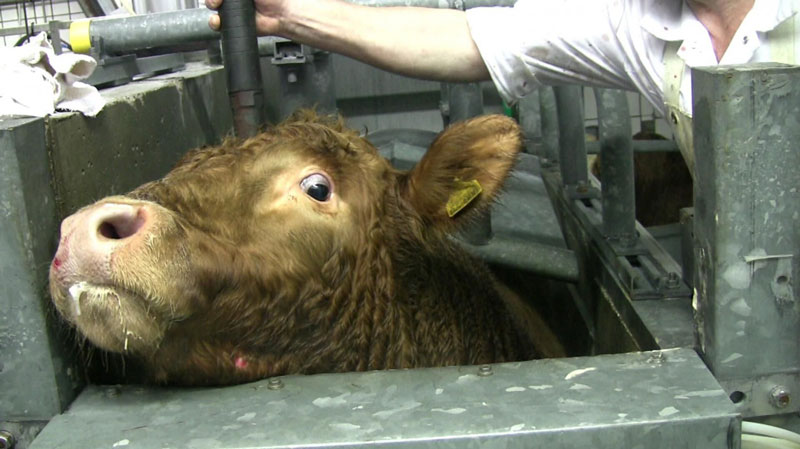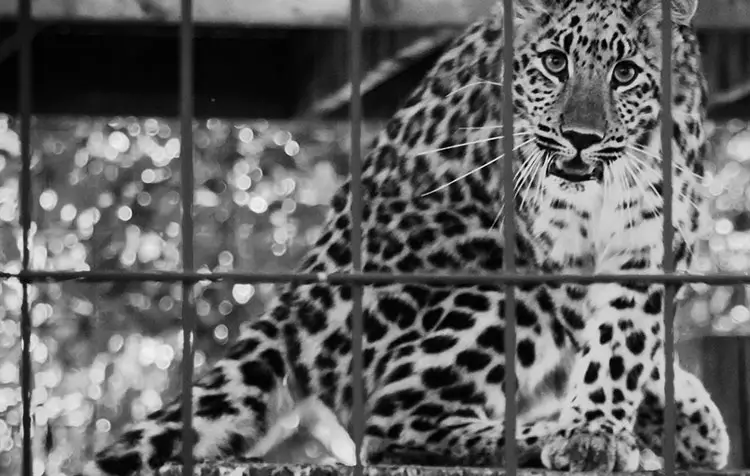You want to know what speciesism is? Then you've come to the right place! Most people know what sexism and racism mean. These forms of discrimination still exist, but are no longer tolerated in our society. They do not correspond to our moral values. But probably only very few people have heard of speciesism. Perhaps because the exploitation of animals for food, entertainment, Animal testing or clothing is an ordinary and rarely questioned part of our society. But as soon as you start to think about the fact that we humans put ourselves above animals just because they are different, the moral question arises.
In this article, we want to show you exactly what speciesism is. You will learn how it should be evaluated from an ethical perspective and how you can promote anti-speciesism in everyday life.
What is speciesism?
Dictionaries define speciesism as "View according to which humans are superior to all other species and therefore entitled to treat their representatives as they see fit". Put simply, the term means that we justify the unequal treatment of two individuals (humans and animals) on the basis of a supposedly superior position.
And because animals belong to a different, specific species, we humans believe we can oppress them. Ultimately, speciesism is an ideology that legitimizes and promotes acts of violence against weaker people. This The opposite is the antispeciesism - the equality of humans and animals.
Speciesism and ethics

Our ethical position is: we humans belong to the more intelligent, superior species and therefore we can treat all weaker creatures in the way that benefits us the most. For example, we justify our excessive meat consumption with arguments such as "Eating animals is my personal choice". But it is not personal as long as a victim is involved. While we chew on our steak or drink the mother's milk of a cow, we merely repress the fact that someone else had to suffer for it. Animals, like us, are emotional beingswho feel joy, but also fear and pain. Nevertheless, we exploit them for our own purposes.
The reasons why we consume animal foods are usually Taste, tradition, convenience and Habit. But can we really justify what we are doing to the animals in the Factory farming cut off their curly tails, remove their horns, grind down their teeth, shorten their beaks, artificially impregnate them and even set the date of their death at birth? A date on which we stun them with a captive bolt pistol, gas them in a gas chamber or run their heads through an electric bath before slitting their throats? None of which we would wish on our worst human enemies. We even feel disgust and no hunger when we kill a Documentation about factory farming see Nevertheless, we inflict this torture on innocent animals for our own benefit, even though we don't have to. This is exactly what discrimination against certain animals is - specism.
Can you love animals and eat them?
But we don't discriminate against all animal species. Some animals we like to cuddle, others on our plates - depending on how we were brought up and what we feel like eating. This idea that we should care for some animals and not care for others is the first form of discrimination we are taught as humans. It is a social injustice that until now is still an inherent and generally accepted part of our society.
If asked, most of us would probably claim to love all animals. But is it an act of love if we pay someone else to slit a cow's throat or rape and impregnate it against its will so that it continues to produce cow's milk for our personal taste? Any sensible person would probably answer this question with NO. Those who nevertheless consume animal products are therefore not acting in accordance with their moral values. And if it were socially acceptable to eat dogs and cats in Germany, perhaps people would do the same.
Tip: In a separate post, I have published the contradiction "Love animals but eat meat" once again illuminated in more detail!
How we can promote anti-speciesism

Just as there is anti-sexism and anti-racism, the term anti-speciesism has now also become established. It simply refers to social justice for animals and aims to attack the very thought structures that impose an inferior status on animals, leaving them open to exploitation and destruction by humans.
Do you, like I used to, have a speciesist mindset? Then simply put yourself in the position of a sentient, innocent animal. For example, immerse yourself in the mind of a dairy cow that is artificially impregnated and has her calf torn from her within 48 hours of giving birth. She experiences this process several times before she stops giving milk due to exhaustion and is slaughtered after a few years, even though she could easily live to be 25. Is this a life you would like to live yourself? If not, why are you paying for someone else to have to endure it? The fact that I didn't have a logical answer to this question was one of the most important things for me. Reasons to become vegan.
Realize that animals are not objects. There is no steak, no schnitzel and no meat on your plate - it is the body part of another living being. We must not lose this connection. To do this, we have to be absolutely aware that animals are sentient beings with their own desires, dreams, fears and preferences - just like us humans. By raising awareness of this in other people, you can make a significant contribution to the anti-speciesist enlightenment of our society.
Tip: In the article Help animals in everyday life you'll get plenty of inspiration to live an even more anti-speciesist life.
Speciesism - Racism towards other living beings
We humans put ourselves above the animals because we have the technology to do so. But just because we have this power does not automatically make it morally acceptable to exploit it. Suppose I were the first person today to have the "brilliant idea" of exploiting animals for our taste, eating their meat and eggs and drinking their milk. Then most people would react with disgust. But since these very things have been part of our habits and customs for ages, the exploitation of animals and the associated speciesism is a reality today.
We must counteract this grievance. Social justice must also apply to animals, as they are sentient individuals just like us, who have done nothing wrong to anyone. Anti-speciesism also has enormous psychological potential for our coexistence with one another: because if we no longer even harm animals, how difficult will it be for us to harm other people?
Remain fair and respectful towards all sentient beings.

PS.: I hope that this article could help you. At Knowledge blog you will find many more informative articles! Under Mass tourism you can find out, for example, to what extent the mass influx of holidaymakers is harming animals, the environment and other people.







Hello Christoph,
Thank you very much for this great article. You have brought everything here wonderfully to the point. It is just frightening that it is a matter of course in our world that man puts himself above all others and thus every other individual can only lose. For years, I myself simply did not question many things, did not even think about it. Fortunately, I do that in the meantime. In retrospect, I am shocked at how "natural" and normal I perceived animal products to be. We live in an absolutely deluded world. I hope that many more people will wake up and question their actions.
Hey Lisa! Thanks for your feedback. Yes, it's crazy that we never questioned these things. But now that we know better, we need to do better - and bring our values back in line with our actions.
Many greetings,
Christoph